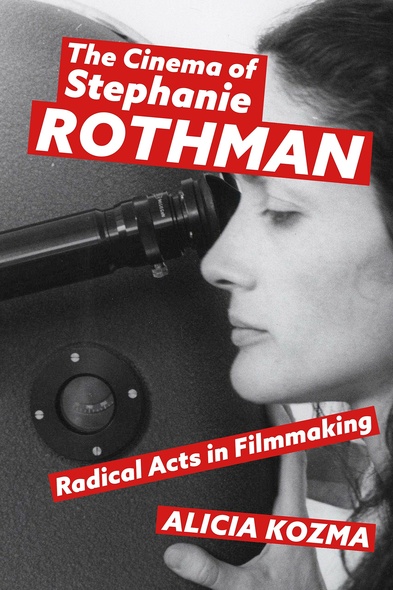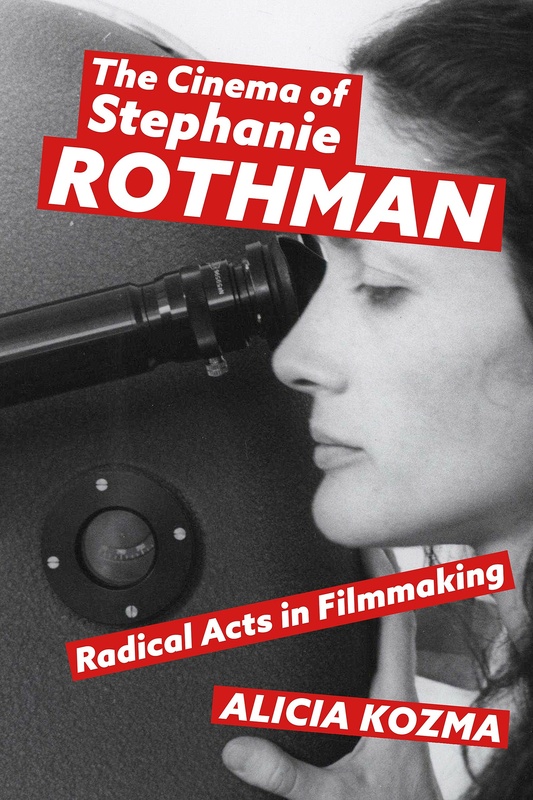
The Cinema of Stephanie Rothman
Radical Acts in Filmmaking
The rare woman director working in second-wave exploitation, Stephanie Rothman (b. 1936) directed seven successful feature films, served as the vice president of an independent film company, and was the first woman to win the Directors Guild of America’s student filmmaking prize. Despite these career accomplishments, Rothman retired into relative obscurity. In The Cinema of Stephanie Rothman: Radical Acts in Filmmaking, author Alicia Kozma uses Rothman’s career as an in-depth case study, intertwining historical, archival, industrial, and filmic analysis to grapple with the past, present, and future of women’s filmmaking labor in Hollywood.
Understanding second-wave exploitation filmmaking as a transitory space for the industrial development of contemporary Hollywood that also opened up opportunities for women practitioners, Kozma argues that understudied film production cycles provide untapped spaces for discovering women’s directorial work. The professional career and filmography of Rothman exemplify this claim. Rothman also serves as an apt example for connecting the structure of film histories to the persistent strictures of rhetorical language used to mark women filmmakers and their labor. Kozma traces these imbrications across historical archives.
Adopting a diverse methodological approach, The Cinema of Stephanie Rothman shines a needed spotlight on the problems and successes of the memorialization of women’s directorial labor, connecting historical and contemporary patterns of gendered labor disparity in the film industry. This book is simultaneously the first in-depth scholarly consideration of Rothman, the debut of the most substantive archival materials collected on Rothman, and a feminist political intervention into the construction of film histories.
The Cinema of Stephanie Rothman: Radical Acts in Filmmaking is a significant and unreservedly recommended addition to personal, professional, community, film school, and academic library cinematic history and biography collections.
Make no mistake, this a thorough, literary, detailed survey surrounding the vocation of one of the most respected women directors to emerge from the predominantly male world of Hollywood.
This deep dive into Stephanie Rothman’s career as a director and oft-forgotten groundbreaking visionary of 1970s indie filmmaking illuminates the intersection of economic justice and progressive filmmaking. . . . The highlighted films and history are likely to invoke introspection and women’s empowerment. This book sheds new light on the prevalent sexism in filmmaking, both in front of and behind the camera.
This book sheds new light on the prevalent sexism in filmmaking, both in front of and behind the camera.
A vivid portrait of the difficulty of creating a career in mainstream Hollywood for women in the 1970s
Thanks to Kozma’s interventionist scholarship, we can now set the record straight on filmmaker Stephanie Rothman, a woman whose discriminatory experiences in the film industry give lie to the idea of parity as the ultimate solution to the systemic sexism and misogyny women faced and continue to face at all levels in the profession.
Alicia Kozma is director of the Indiana University Cinema. She holds a PhD from the Institute of Communications Research at the University of Illinois at Urbana-Champaign. She is coeditor of ReFocus: The Films of Doris Wishman and Mobilized Identities: Mediated Subjectivity and Cultural Crisis in the Neoliberal Era, and her work has been published in Media Industries, Film Comment, Camera Obscura, Television and New Media, and other publications.





